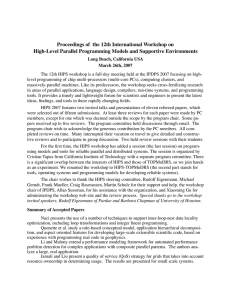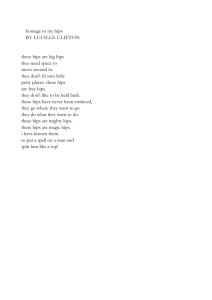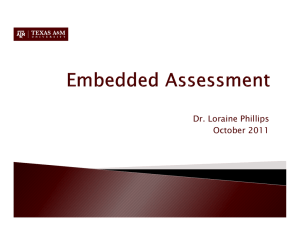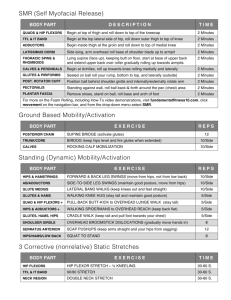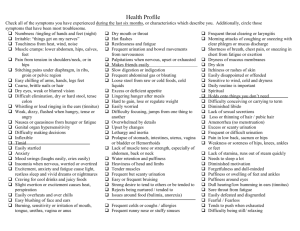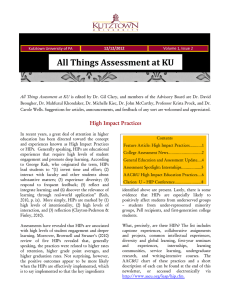What is the End Game?
advertisement
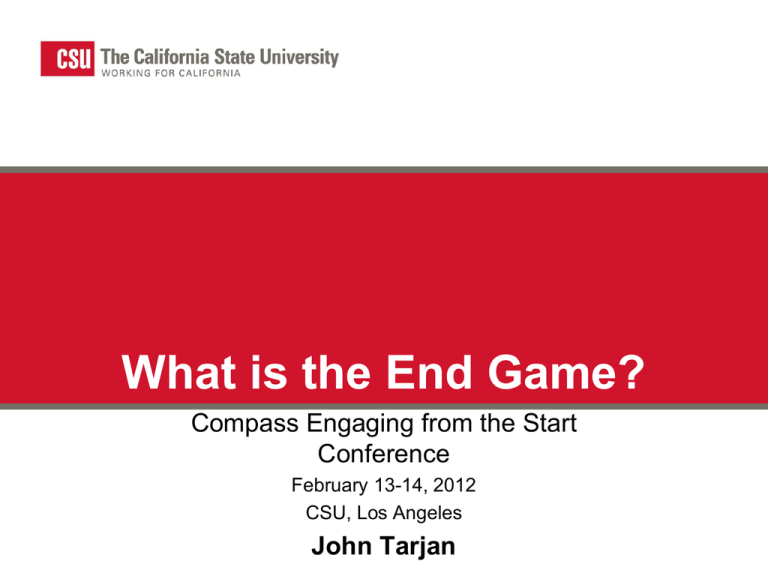
What is the End Game? Compass Engaging from the Start Conference February 13-14, 2012 CSU, Los Angeles John Tarjan Presentation Overview • • • • • Why Fund Experimentation in GE? My Perspective on Compass Important Questions For Instance? Request Why Fund Experimentation in GE? • Do Good Things for Your Students • Basic Research • Applied Research My Perspective • Compass’ Value Lies in Being Able to Inform Intersegmental Policy (Title 5/EO 1065) to Impact All Students • Constraints/Challenges • • • • • 112 x 23 Legislative/Board Mania for Efficiency New Learners Continued Funding Challenges Inertia • Change Needs to Be Both Discrete and Clearly Communicated Important Questions • What, if any, specific student learning outcomes (SLOs) should be formally incorporated into Area Breadth? • Is it feasible to incorporate SLOs in a curriculum that needs to support smooth transfer and reciprocity? • Question related to the first—is 39+9 the way to go or could we require a combination of units in GE and demonstrated learning outcomes (via e-portfolios, examination, projects, presentations, etc.). Questions to Be Answered (cont) • Which, if any, high impact practices (HIPs) should be formally incorporated into Area Breadth? • Is it feasible to incorporate HIPs in a curriculum that needs to support smooth transfer and reciprocity? For Instance? Outcomes • • • • Knowledge Skills Understanding Experiences Knowledge • List the disciplines within the social/behavior sciences and explain their particular methodologies for discovering new knowledge and their main areas of focus. • Explain the scientific method and the assumptions underlying it and propose the null and alternate hypotheses for the following three research questions. • Describe the following forms of literature and explain why each may be most appropriate for a particular type of expression. Skills • Explain the information contained in a graph, pie chart and table. • Design a research study to answer the following question. • Deliver an effective persuasive speech with the following requirements. Understanding • Provide examples of the contributions that the following disciplines can make in addressing the issue of sustainability. • • • • • • Political science Sociology Chemistry Biology Economics Philosophy • Identify all of the logical fallacies in this essay and provide alternative arguments. • Explain how art has contributed to social change in at least three different societies. Experiences • Participate in a group project that answers a research question and presents the results to an audience of peers. • Complete a service learning project. • Read literature from at least two cultures very different from your own that provide an insight into the perspectives of the individuals in those cultures. For Instance? HIPs • Complete a service learning project utilizing knowledge and techniques learned in a GE course or an approved internship including a final report or an undergraduate research project. • Complete a first year experience in which you • Develop a graduation plan. • Interview a faculty member in your intended major and provide an oral report back to the class. • Write a review of an on-campus activity. • Complete at least three collaborative assignments or projects or participate in a learning community. Request to You • Plan to give a report to the GE Advisory Committee in November 2013 • What outcomes, if any, should we require of all students? • Number of associated outcomes • Level of proficiency • What problems are associated with requiring these outcomes? • Disruption of current course patterns/offerings • Demonstrating completion • Providing “credit” for completion • What strategies/policies can overcome these problems? Request (cont) • Plan to give a report to the GE Advisory Committee in November 2013 • What HIPs, if any, should we require of all students? • Options? • Specific requirements • What problems are associated with requiring these HIPs? • • • • Cost Finding faculty Accommodation for student circumstances Providing “credit” for completion • What strategies/policies can overcome these problems? Comments/Questions? www.calstate.edu
